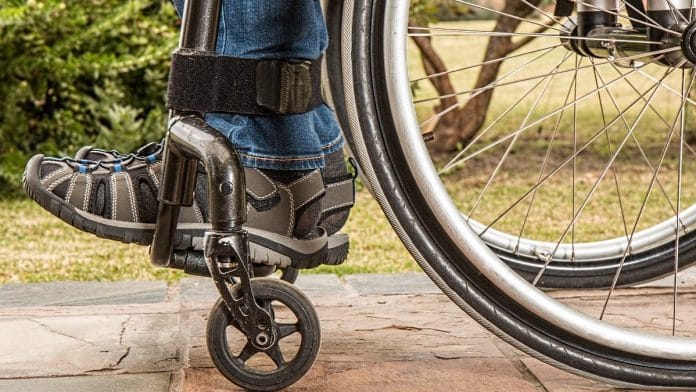
Thank you dear subscribers, we are overwhelmed with your response.
Your Turn is a unique section from ThePrint featuring points of view from its subscribers. If you are a subscriber, have a point of view, please send it to us. If not, do subscribe here: https://theprint.in/subscribe/
Rights of Persons with Disabilities Act, 2016, has a provision to provide accessibility to all in every mode of public transport. There is a dire need of accessible taxis for most of the persons on wheelchairs, be it due to some permanent or temporary disability, disease or even old age. Many tourists who wish to ride a vehicle sitting in their wheelchairs do not visit places of interest due to non-availability of wheelchair accessible cabs. I have written to the Ministry of Heavy Industries to frame policies for the same with Maruti Udyog and other corporates that manufacture passenger vehicles such as like Tata Motors and Mahindra & Mahindra. Their plea is that there is insufficient market for such vehicles and not cost effective for them.
What I wish to point out is there is no need to invest too much. They only need to make certain minimal changes in a few of the existing normal passenger cars such as vans and SUVs having enough clearance between floor and roof to accommodate a person sitting in wheelchair. Last year, I bought a five-seater EECO van for myself with low roof and got it replaced by a high roof in one of the Maruti workshops. The high roof was supplied by Maruti itself as it come in EECO ambulances; these ambulances are cannot be bought as per policy by an individual. A simple solution is to use high roof ambulances as taxis; they can be used as normal taxis as well as accessible ones by just putting a foldable/removable ramp. Normal WagonR back seat can be made foldable to make it an accessible taxi when needed. These minor changes in normally manufactured vehicles will make them accessible at a cost of hardly a few thousands per vehicle. The best part is that these can be used as normal taxis, and when needed, as wheelchair accessible taxis by folding the seats, pulling out a ramp and securing the wheelchair along with the passenger using extra belts.
The present government has put out a slogan “Sabka Saath Sabka Vikas” used repeatedly by print and visual media. It also passed the new Disability Act, 2016, worded on the lines of the UN Convention on Rights of People with Disabilities (UNCRPD). It has floated the Sugam Bharat (Accessible India) scheme but mobility of wheelchair-users like me is compromised due to non-availability of accessible public transport. Distributing wheelchairs and tricycles in Diyang Welfare Mela could be a step towards the goal of Sabka Vikas. Metro or low floor buses can take a wheelchair user from one point to another but my question is about the last mile connectivity – how do I reach my final destination from the bus stand or station on a wheelchair. Even a distance of 100 meters on a wheelchair can be a daunting task with the unruly traffic on the roads. Why is it that the Department of Empowerment of Persons with Disabilities under the Ministry of Social Justice does not come forward and work with related ministries. If persons with disabilities cannot reach schools and institutions for their education and skill development or reach their work place, what sort of empowerment are we talking about? Perhaps persons with disabilities are marginalized and do not make a vote bank. I appeal to the kind office of the Honourable Prime Minister Shri Modi ji to direct concerned Ministries to frame policies in coordination with the manufacturers for accessible taxis as well as auto rickshaws, the latter for unreachable areas for cabs, or for those who cannot afford cabs.
My suggestion can be a big game changer not only for the persons with disabilities but also for the nation’s economy on the whole. There is a big class of educated qualified persons among the disabled community who could be empowered to join jobs by enhancing their mobility. So many call centres and corporates are ready to provide jobs and many of them also provide transport to their employees. If their means of transport could be accessible vehicles for the disabled, many individuals with disabilities could become financially independent and even become tax payers., contributing to the nation’s economy. They could pursue further education, and live their life to the fullest by visiting malls, theatres and other public places. They could become Divyang in the real sense and talking of politics, be part of the assured vote bank.
These pieces are being published as received – they have not been edited/fact-checked by ThePrint.


COMMENTS